From earning their juris doctors to serving in local governments, Schwarzman Scholars Alumni are strongly represented in law, policy and government positions throughout the world. Read on to see what some of our Scholars have been up to since earning their masters in global affairs at Schwarzman College.
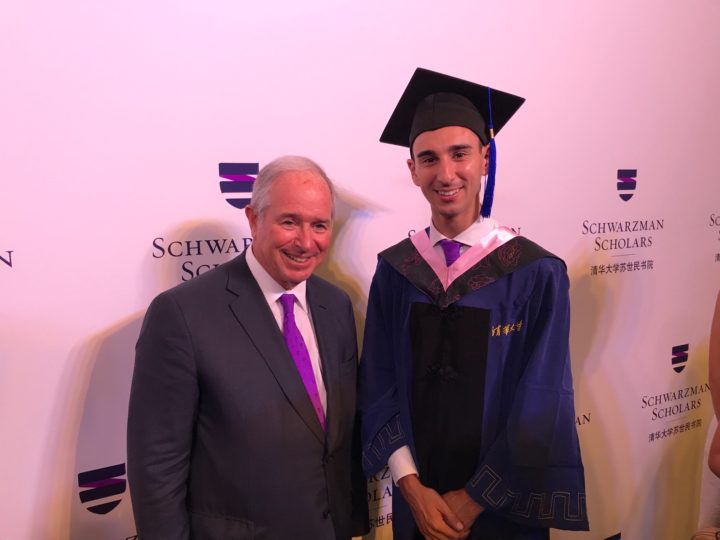
Atticus DeProspo (2016-17) – Building the Basis of Legal Thinking
Atticus DeProspo credits his experience with Schwarzman Scholars as transformative in preparing him for his career as a lawyer. Upon graduation from the inaugural class of Schwarzman Scholars, Atticus received his M.Phil. in Criminology from the University of Cambridge as a Gates-Cambridge Scholar and his Juris Doctor from the University of Alabama School of Law. After completing his law degree, Atticus served as a law clerk on the United States District Court for the Northern District of Alabama and then on the United States Court of Appeals for the Second Circuit. After finishing up his clerkships, Atticus transitioned into the private sector and is currently working as an associate for Williams & Conolly in Washington D.C.
Atticus believes that his year in China helped him learn different ways to think and approach problem solving – two critical skills in the legal field. “Interacting with and learning from my fellow Scholars as we discussed challenging and complex topics was instrumental in helping me develop my critical thinking and analytical skills. In my work today, I constantly have to use these skills to help strategize solutions and develop legal arguments.”
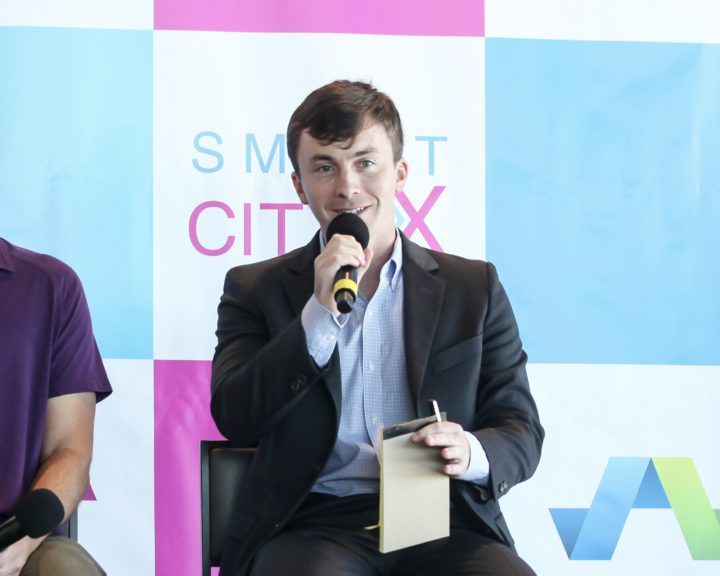
Clay Garner (2017-18) – Bringing a Global Approach to Local Problems
While at Schwarzman College, Clay Garner was first exposed to public sector work through a deep dive to Baoji City Hall and an internship with the United Nations Population Fund. For his Capstone project, Clay explored models of public-private partnerships in China that have substantially improved quality of life, leading to his interest in tech’s role in public policy. Today, Clay serves as the Chief Innovation Officer to the Mayor of San Jose, California – America’s tenth largest city and the urban center of Silicon Valley.
Clay credits Schwarzman Scholars for influencing the global approach he takes to local problems. “What can California learn from China’s experience when it comes to building better, faster and more resilient infrastructure for our people?” This question is what motivates Clay. Since joining the Office of the Mayor, he has led a team of technologists and policymakers responsible for improving San Joseans’ livelihoods, access to opportunities, and city experiences. One of his more recent initiatives involved the rollout of a free community Wifi network for 300,000 residents and San Jose’s citywide digital privacy policy.
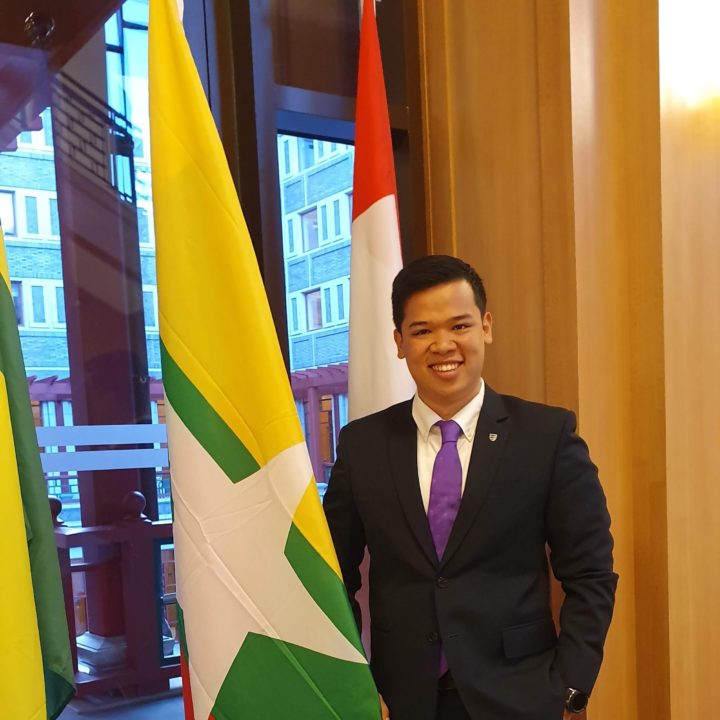
James Aung (2019-20) – Connecting the East and West through the Schwarzman Alumni Network
James Aung applied to Schwarzman Scholars knowing that he wanted to use his background in business technology to improve governance in his home country of Myanmar. At Schwarzman College, he made friends with like-minded Scholars who were passionate about having a positive impact on their communities. After graduating in 2020, James joined USAID’s Transparency and Inclusive Growth Initiative as a Digital Policy Specialist in Myanmar, working on improving the country’s digital economic policies. In 2021, James relocated to the Netherlands and now works for a Belgian platform called CitizenLab, advancing civic engagement and community participation through technology in Europe and the US.
In his free time, James has continued to contribute to political movements in Myanmar and has been developing on a digital platform that can connect aid organizations with conflict areas throughout the country. He has worked with Sara Sudetic from the first cohort on this personal project, who has been “immensely helpful” due to her experience in and extensive knowledge of the region. He’s found that for whatever challenges he has come across in his professional life, “there are always a few Schwarzman Scholars who know about subject and can provide you with help.”
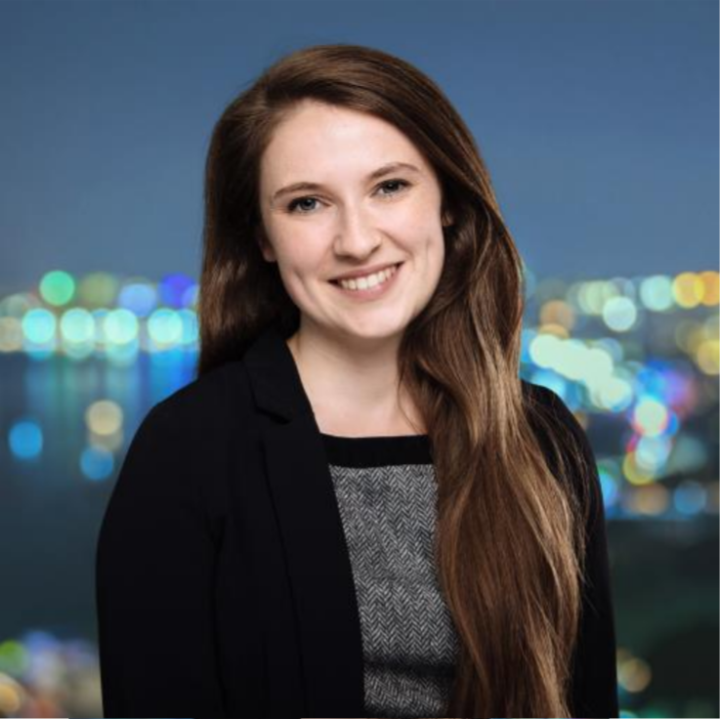
Stephanie Burrell (2016-17) – Driving Multilateral Cooperation on Climate Change
After graduating from Schwarzman College, Stephanie Burrell joined the Global Leadership Fellows Programme at the World Economic Forum to pursue her interest in shaping the future of global climate policy. As a Global Leadership Fellow, Stephanie built on the leadership skills and global affairs knowledge she gained as a Scholar, using them to address issues requiring multilateral cooperation. Stephanie leads Forest Economy initiatives at the Forum and works with the public sector, private sector, and civil society to build forest value chains and forest-based economies which are “climate smart,” meeting social and ecological safeguards. Her work involves engaging and convincing decision makers, including policymakers, through bilateral conversations and community meetings, as well as by showcasing the work of innovative projects. Stephanie firmly believes that the Schwarzman community prepared her for this task of building connections between stakeholders from different backgrounds and from across the world.
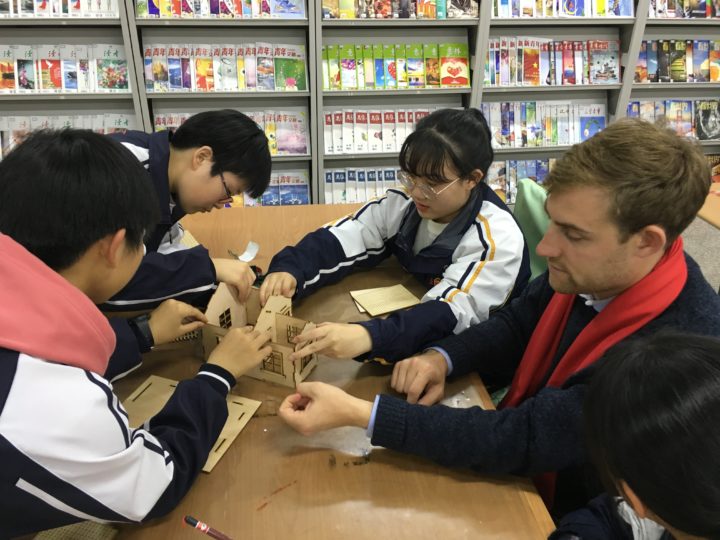
Samuel Curtis (2019-20) – Exploring the Future of AI Policy
Samuel Curtis had a sense that he would work in science and technology policy when he entered Schwarzman Scholars. At that time, he was more familiar with and interested in biotechnology, but dining hall conversations with other Scholars and professors piqued an interest in AI. Sam had the opportunity to further explore this interest in the program’s science and technology policy course and in meals with individuals he met at the Industry Immersion event. His capstone advisor, whom he also met at Industry Immersion, warmly welcomed Sam’s interest in a Capstone focused on AI in China and helped him explore career paths in the field.
After graduation, Sam joined a small nonprofit called ‘The Future Society’ which focuses on AI governance. The organization examines the risks that AI systems pose to human survival and tries to steer institutions, laws, and policies to better protect our shared future. He finds his job deeply meaningful and “owes a debt of gratitude” to many of his Schwarzman Scholars classmates and faculty for helping shape his path into the AI policy space.